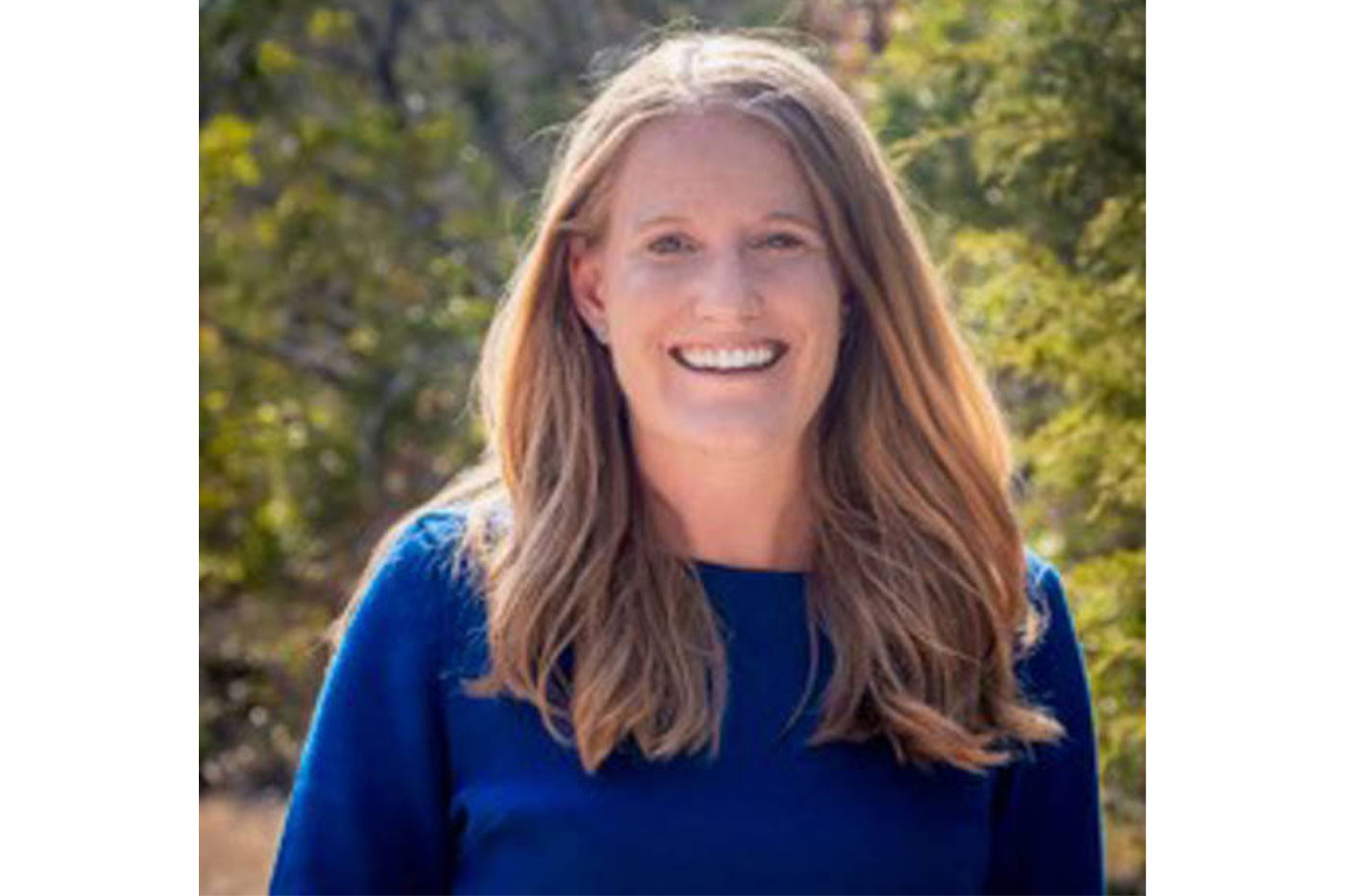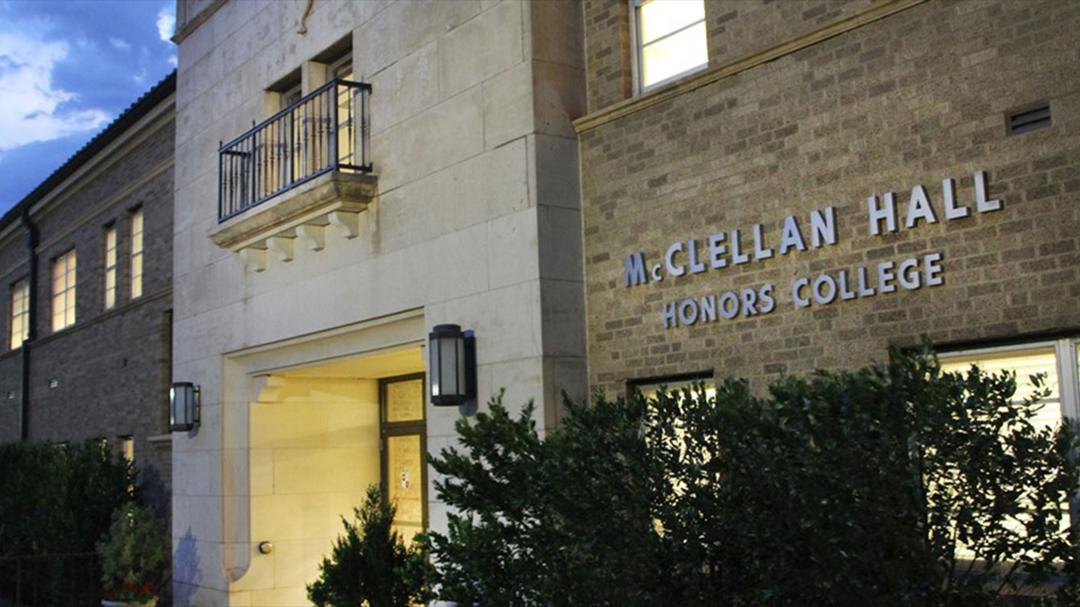Dean Jill Hernandez has put together an eclectic board to help her lead, guide and direct.
From early in her tenure as dean of the Honors College at Texas Tech University, Jill Hernandez knew she wanted to assemble an advisory board.
This wouldn’t be just another group. Hernandez could begin with the end in mind, take her time and build the vision from the ground up, creating tangible expectations for her and for board members from the outset. The emphasis would be on finding people who could share their wisdom, provide counsel and serve as ambassadors of the brand.
It took a little while and a lot of intentionality, but the Honors College Advisory Council is now reality. The full group meets on campus regularly, and Hernandez has regular contact with individual members throughout the year.
“There are a lot of different ways to do boards,” she said. “I always tell our prospective members that we are not a cocktail-and-conversation board. There is nothing wrong with cocktails and conversation, but if we’re going to ask people to dedicate their time, we want this to be a board of action.”
Consequently, Hernandez asks board members to commit to a monthly conversation with her as well as attend two meetings per year, one of which must be in person. She keeps a fresh list of topics handy when she connects with members, offering updates, answering questions and circling back to tie up loose ends.
“It was never a question as far as whether we needed an advisory board,” she said. “I wanted to make sure we had a group from different walks of life and different times at Texas Tech. I also want them to help guide and shape what we’re doing as well as hold me accountable in terms of what we’re doing in the Honors College.”
The group comprises a cross-section of people fluent in languages adjacent to higher education. They are Texas Tech graduates with Honors College experience, and they have carved successful career trajectories in the years since. Likewise, each has unique skillsets ranging from leading businesses to cultivating philanthropy.
“We’ve been at it for a year,” Hernandez said. “Each person was chosen for their demonstrated level of commitment and their intellectual curiosity about what was happening in Honors. For now, we are keeping it intentionally small. I feel like if it gets too big, for us in Honors, the return on investment diminishes and then it’s, ‘Well, we need cocktails.’”

It was there at the intersection of commitment and curiosity that Hernandez extended an invitation to Cary Dupuy to be part of the board. She jumped at the chance to serve and is grateful to have an opportunity to give back to her alma mater in this advisory capacity. Dupuy is the Texas regional director of the National Parks Conservation Association.
She holds two degrees from Texas Tech and still remembers her first visit to Lubbock years ago as a middle-school student, recalling how a brilliant blue sky and gorgeous sprawling campus seemed to be beckoning her to stick around and enjoy both.
A graduate of Willis High School north of Conroe, Dupuy returned to the South Plains the summer before her first year. She arrived at Texas Tech as a Clark Scholar studying microbiology in the College of Arts & Sciences and was part of what was then known as the Honors Program. She attended Texas Tech from 1998-2002, taking advantage of the program’s smaller classes and building friendships that continue today.
When the chance to reconnect with Texas Tech came, she wasted no time accepting and has been deeply invested in all things Honors College in the days since.
“I received an email and then had a really good visit with Dean Hernandez,” she said. “It was amazing to hear all the great things they were doing compared to when I started many years ago. She continued to give me updates on what she was doing with the Honors College, and then asked me to serve on the advisory council.”
Dupuy has not only given time to the group, but she also has hosted several students in the Honors College “externship” program at her workplace. Externships typically involve shorter time commitments and give participants a quicker, immersive experience with a prospective employer. Often, it helps students decide if a possible career path is right for them.

The externship with the National Parks Conservation Association gives students a window into previously unexplored and unconsidered career possibilities. The association is an advocacy organization dedicated to supporting national parks so most of its work takes place out of public view. It’s a much different perspective from that of a park ranger, who is often the only point of contact people have with park personnel.
“We had a student come with us on trips to Guadalupe Mountains National Park and who also sat in on a meeting with a congressional staffer,” she said. “They heard about issues and funding and things going on with national parks.”
It’s those sorts of unique experiences Hernandez wants Honors College students to have access to, which is part of the reason she has been purposefully selective in bringing people onto the council.
At on-campus meetings, Hernandez gives the group a deep dive into numbers, initiatives, accomplishments, goals and gaps. Her expectation is they likewise will give her unvarnished feedback that will result in the Honors College continuing to grow.
“I am very honest with this group,” she said. “I do not pull punches with them, and I focus each of those members on areas where I think they have a particular strength, where their background and expertise and commitment to Honors could really be important. I want them to see an immediate impact of their time.”
Members are put in a position to succeed and turned loose to advise. In addition to the information Hernandez shares, the board also hears from other deans who provide updates in specific areas. Eventually, Hernandez would like to see the group divide into subcommittees with members attached to certain projects or responsibilities.
The council has slowly expanded and now holds seven members. Hernandez said she has had a lot of interest from alums who would like to serve, but the plan is to remain small with incremental growth as it makes sense.
In addition to Dupuy, other board members are Dr. Nick Bergfeld, instructor at Texas Tech; Dr. Ami Chatrath, psychiatrist with wiseMIND; Michael Ijeh, institutional investor with the Teacher Retirement System of Texas; Joseph Kmeth, attorney with Latham & Watkins; Jordan Knight, senior associate with FIG Corporate Banking, Texas Capital Bank; Sam Piercy, senior analyst with the U.S. Government Accountability Office; and Lori Zamora, workforce development manager with the City of San Antonio.
At some point, Hernandez sees the board growing to a dozen members, but that number remains out on the horizon. The dean’s commitment is to ensure the board is kept busy enough to justify the investment of time by everyone involved.
“I don’t get back to Texas Tech near as often as I would like to,” Dupuy said. “This keeps me connected with campus and gives me the opportunity to provide feedback and thoughts on how I can continue to support the organization that helped me so much. The council is diverse. We work in dramatically different fields and backgrounds. We offer things to think about or that could be helpful.”
It has also been an Honors College education of a different sort for Dupuy, who marvels at how much things have changed since her undergraduate days.
“I often have to ask them to tell me more about things like the Medallion Ceremony,” she said with a laugh. “I don’t have a medallion. What are these different things you’re doing now? It is incredible to hear and see how much investment Texas Tech has made and created as they have grown it into a flourishing Honors College.”
During her career in education, Hernandez inherited several boards, but this is the first one she has created. There are still no bylaws to govern the group’s activities, so the council doesn’t have officeholders. Likewise, there are no term limits.
That’s because Hernandez knows her board members are busy, and she is confident they will let her know when their civic bandwidth has reached maximum capacity.
“The goal for me when thinking about their length of time is for them to continue to touch base with me and let me know if it is working for them and working for the college,” she said. “I want us to get it right, and I want members to feel like if it isn’t working well with their own life habits and demands, they don’t have to stick in there for three years.
“This board has done some amazing things in a year, and we will continue to do so. That is one of the benefits of being a small college. We can be responsive to the needs of this board, and they will continue to be responsive to the needs of the college.”

